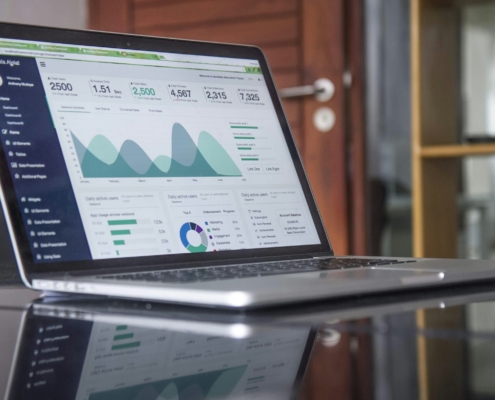A GUIDE TO EUROPEAN DIGITAL PR
Table of Contents
So, you’ve established your Digital PR offering in English-speaking countries, with organic growth across the UK, Europe, and Canada. Now, you’re looking to expand into Germany, Spain, Italy, or Poland to build greater trust and authority. Many brands wonder: should we hire local agencies, and can they replicate the success we’ve seen in the UK? As the demand for European Digital PR has grown, here’s how one team built its own international strategy and successfully entered these new markets.
Setting Up Digital PR in Germany, Spain, and Beyond
Building an international Digital PR department from scratch offers valuable insights. Spotting a gap in the European market in early 2021, the team realised Digital PR was relatively new in many countries, including Spain, Germany, France, Italy, and the Netherlands. They noticed that their campaigns were already gaining traction across Europe, even without targeting those countries directly. This prompted the idea: what if native speakers who understood these media landscapes could drive the outreach?
A global client’s investment allowed the team to expand their focus to Germany, then Spain, and the Netherlands. Native speakers were hired and trained, enabling the team to build hundreds of links across top publications, securing mentions on TV, print, radio, and more. Expanding a PR strategy internationally is no quick task; it takes time and a commitment to learning. Here are the key lessons and do’s and don’ts for expanding Digital PR across Europe.
The Potential for Digital PR in Europe
For brands aiming to build links in major European publications, the landscape offers unique opportunities. Unlike in the UK, where journalists are often inundated with hundreds of Digital PR emails daily, European journalists are less saturated with these pitches. This makes it easier to stand out with the right approach.
Key Learnings for Expanding Internationally
- Hiring the Right Team: Finding native European speakers with Digital PR experience and familiarity with the media landscape can be challenging. Instead, look for those with backgrounds in journalism or media. Journalists already know what makes a great story and a catchy headline, which is invaluable for Digital PR. With the right training, they can become Digital PR experts.
- Multilingual Skills Are Essential: Hiring people who can speak multiple languages allows them to work across various markets. It’s a huge asset for any team looking to expand into new territories.
- Relationship Building Takes Time: Building relationships with journalists doesn’t happen overnight. Take time to nurture these connections by thanking them for coverage, sharing successes, and meeting them when possible.
- Train Your Team on Market Differences: European journalists, especially in countries like the Netherlands and Germany, expect high standards in data-led campaigns, often comparing them to government studies. It’s essential to prepare your data team to meet these expectations and avoid using unreliable sources.
Do’s and Don’ts of Digital PR in Europe
Do’s
Research the Media Landscape
Each country’s media landscape and cultural nuances are unique. Conduct in-depth research on publication types, the proportion of digital outlets, and audience behaviour. Understand how people consume news, whether they trust the media and the devices they use. Share this research with your team to set realistic KPIs, manage client expectations, and streamline project timelines.
Hire Native Speakers with Media Knowledge
Success in a market requires native speakers who understand the culture and media environment. A native Dutch speaker, for example, knows what topics are newsworthy in the Netherlands, understands cultural references, and can write effective press releases in Dutch. Hiring native speakers also helps build strong journalist relationships, as they can communicate in the local language.
Plan Hiring in Advance
Finding multilingual Digital PR specialists can take time. With the Digital PR industry growing rapidly and more agencies expanding internationally, there’s fierce competition for talent. Start your hiring process early, as it may take several months to find the right candidate.
Speak Directly with Journalists
To work effectively with journalists in multiple countries, you need to understand their work processes and objectives. Simple questions can yield valuable insights. For instance, ask when they hold editorial meetings, as this can determine the best time to send press releases. Also, learn about their goals—are they focused on page views, social interactions, or reader retention? Knowing these details can help you tailor your approach to each journalist’s preferences.
Don’ts
Don’t Expect Immediate Results
Building a new market from scratch is a gradual process. Instant success is rare, so patience is crucial. It took the team a year to establish a strong presence in each new market. Some early campaigns didn’t perform well due to a lack of experience, but each setback provided valuable insights. Track your results, understand what works, and learn from what doesn’t.
Don’t Compare Every Market to the UK
It’s essential to set expectations realistically. European Digital PR markets differ greatly from those in the UK or US. The European PR landscape is less mature, client expectations vary, and media ecosystems are generally smaller. For example, the UK has 1,500 news publications, while the Netherlands has only 183 high-quality outlets. Tailor your KPIs for each market accordingly.
Avoid Recycling Campaigns Across Markets
One size does not fit all. A campaign that succeeds in the UK may fail in Germany, where journalists favour data-led stories with a regional focus and rigorous methodology. Each campaign should be localised to resonate with the target market’s audience. Make sure every campaign feels relevant and authentic to the local culture.
Don’t Give Up Too Soon
Expanding into a new market can be challenging, especially in the first six months. But if you persevere, the rewards are worth it. Building a successful presence in a new market is a gradual process, so keep pushing forward and refining your strategy based on your findings.






